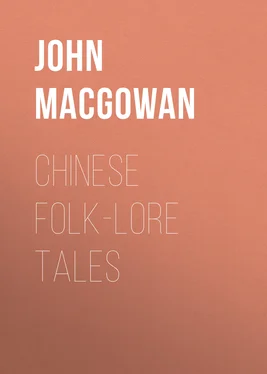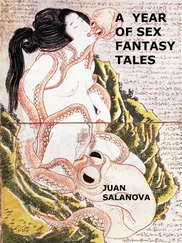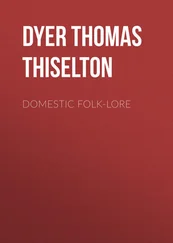John Macgowan - Chinese Folk-Lore Tales
Здесь есть возможность читать онлайн «John Macgowan - Chinese Folk-Lore Tales» — ознакомительный отрывок электронной книги совершенно бесплатно, а после прочтения отрывка купить полную версию. В некоторых случаях можно слушать аудио, скачать через торрент в формате fb2 и присутствует краткое содержание. Жанр: foreign_prose, foreign_antique, на английском языке. Описание произведения, (предисловие) а так же отзывы посетителей доступны на портале библиотеки ЛибКат.
- Название:Chinese Folk-Lore Tales
- Автор:
- Жанр:
- Год:неизвестен
- ISBN:нет данных
- Рейтинг книги:4 / 5. Голосов: 1
-
Избранное:Добавить в избранное
- Отзывы:
-
Ваша оценка:
- 80
- 1
- 2
- 3
- 4
- 5
Chinese Folk-Lore Tales: краткое содержание, описание и аннотация
Предлагаем к чтению аннотацию, описание, краткое содержание или предисловие (зависит от того, что написал сам автор книги «Chinese Folk-Lore Tales»). Если вы не нашли необходимую информацию о книге — напишите в комментариях, мы постараемся отыскать её.
Chinese Folk-Lore Tales — читать онлайн ознакомительный отрывок
Ниже представлен текст книги, разбитый по страницам. Система сохранения места последней прочитанной страницы, позволяет с удобством читать онлайн бесплатно книгу «Chinese Folk-Lore Tales», без необходимости каждый раз заново искать на чём Вы остановились. Поставьте закладку, и сможете в любой момент перейти на страницу, на которой закончили чтение.
Интервал:
Закладка:
It was not mere robbery, however, that was in the mind of the man who had committed this great crime. He had bigger ideas than that. He had noticed that in personal appearance he very much resembled his victim, so he determined to carry out the daring project of passing himself off as Kwang-Jui, the mandarin whom the Emperor had despatched to take up the appointment of Prefect.
Having threatened the widow that instant death would be her portion if she breathed a word to anyone about the true state of the case, and having arrayed himself in the official robes of the man whom he had stabbed to death, the boatman appeared at the yamen, where he presented the Imperial credentials and was duly installed in his office. It never entered his mind that it was not cowardice which kept the widow silent, but the stern resolve of a brave and high-minded woman that she would do her part to see that vengeance should in time fall upon the man who had robbed her of a husband whom she looked upon as the direct gift of Heaven.
Now, immediately after the body of Kwang-Jui had been cast into the water, the customary patrol sent by the God of the River to see that order was kept within his dominions, came upon it, and conveyed it with all speed into the presence of the god himself.
The latter looked at it intently for a moment, and then exclaimed in great excitement, "Why, this is the very person who only yesterday saved my life, when I was in danger of being delivered over to a cruel death! I shall now be able to show my gratitude by using all the power I possess to serve his interests. Bring him to the Crystal Grotto," he continued, "where only those who have distinguished themselves in the service of the State have ever been allowed to lie. This man has a claim upon me such as no one before him ever possessed. He is the saviour of my life, and I will tenderly care for him until the web of fate has been spun, and, the vengeance of Heaven having been wreaked upon his murderer, he shall once more rejoin the wife from whom he has been so ruthlessly torn."
With the passing of the months, the widow of Kwang-Jui gave birth to a son, the very image of his father. It was night-time when he was born, and not long after his birth, a mysterious voice, which could not be traced, was heard distinctly saying, "Let the child be removed without delay from the yamen, before the return of the Prefect, as otherwise its life will not be safe."
Accordingly, on the morrow, the babe, about whose destiny even Heaven itself seemed concerned, was carefully wrapped round with many coverings to protect it against the weather. Inside the inmost dress, there was enclosed a small document, telling the child's tragic story and describing the danger from a powerful foe which threatened its life. In order to be able to identify her son, it might be after the lapse of many years, the mother cut off the last joint of the little finger of his left hand; and then, with tears and sighs, and with her heart full of unspoken agony, she took a last, lingering look upon the face of the little one.
A confidential slave woman carried him out of her room, and by devious ways and secret paths finally laid him on the river's bank. Casting a final glance at the precious bundle to see that no danger threatened it, she hurried back in the direction of the city, with the faint cries of the abandoned infant still sounding in her ears.
And now the child was in the hands of Heaven. That this was so was evident from the fact that in a few minutes the abbot of the monastery, which could be seen crowning the top of a neighbouring hill, passed along the narrow pathway by the side of the river. Hearing a baby's cry, he hastened towards the place from which the sounds came, and picking up the little bundle, and realizing that the infant had been deserted, he carried it up to the monastery and made every arrangement for its care and comfort. Fortunately he was a man of a deeply benevolent nature, and no more suitable person could have been found to take charge of the child.
We must now allow eighteen years to pass by. The child that had been left on the margin of the river had grown up to be a fine, handsome lad. The abbot had been his friend ever since the day when his heart had been touched by his cries, and his love for the little foundling had grown with the years. The boy had become a kind of son to him, and in order not to be parted from him he had taught him the temple duties, so that he was now a qualified priest in the service of the gods.
One morning the young man, whose name was Sam-Choang, came to the abbot with a restless, dissatisfied look on his face, and begged to be told who his father was, and who his mother. The old priest, who had long been aware of the tragic story of Kwang-Jui's murder, felt that the time had come when the lad ought to know what he had hitherto concealed from him. Taking out the document which he had found upon him as a baby, he read it to him, and then the great secret was out. After this a long and serious discussion took place between the two as to the wisest methods to be adopted for bringing the Prefect to justice and delivering the lad's mother from the humiliating position which she had so heroically borne for all these eighteen years.
The next day a young priest, with shaven head and dressed in the usual slate-coloured gown, appeared at the yamen of the Prefect to solicit subscriptions for the neighbouring monastery. As the Prefect was absent on some public business, he was ushered into the reception-room, where he was received by his mother, who had always been a generous supporter of the Goddess of Mercy.
At the first sight of this striking-looking young bonze, she found her heart agitated in a strange and powerful way, such as she had not experienced for many a long year; and when she noticed that the little finger on his left hand was without the last joint, she trembled with the utmost excitement.
After a few words about the object for which he had come, the young priest slipped into her hand the very paper which she had written eighteen years ago; and as she looked at her own handwriting and then gazed into his face and saw the striking likeness to the man at whom she had thrown the embroidered ball, the mother-instinct within her flashed suddenly out, and she recognized that this handsome lad was her own son. The joy of the mother as she looked upon the face of Sam-Choang was reflected in the sparkling eyes and glowing look of pleasure that lit up his whole countenance.
Retiring for a short time his mother returned with a letter which she handed to him. In a low voice she told him that it was to her father, who still lived in the capital, and to whom he was to take it without any delay. In order to prevent suspicion on the part of the Prefect, he was to travel as a priest, who was endeavouring to obtain subscriptions for his monastery. He was to be sure, also, to visit the place where his grandmother had been left, and to try and find out what had become of her. In order to defray his expenses she gave him a few bars of gold, which he could exchange for the current money at the banks on the way.
When Sam-Choang arrived at the inn where his father had parted with his grandmother, he could find no trace of her. A new landlord was in possession, who had never even heard her name; but on enquiring amongst the shopkeepers in the neighbourhood, he found to his horror that she was now a member of the beggars' camp, and that her name was enrolled amongst that degraded fraternity.
On reaching the wretched hovel where she was living, he discovered that when her money was exhausted and no remittance came to her from her son, she had been driven out on to the street by the innkeeper, and from that time had tramped the country, living on the scraps and bits which were bestowed upon her by the benevolent. Great was her joy when her grandson led her away to the best inn in the place, and on his departure gave her an ample supply of money for all her needs until they should meet again.
Читать дальшеИнтервал:
Закладка:
Похожие книги на «Chinese Folk-Lore Tales»
Представляем Вашему вниманию похожие книги на «Chinese Folk-Lore Tales» списком для выбора. Мы отобрали схожую по названию и смыслу литературу в надежде предоставить читателям больше вариантов отыскать новые, интересные, ещё непрочитанные произведения.
Обсуждение, отзывы о книге «Chinese Folk-Lore Tales» и просто собственные мнения читателей. Оставьте ваши комментарии, напишите, что Вы думаете о произведении, его смысле или главных героях. Укажите что конкретно понравилось, а что нет, и почему Вы так считаете.












